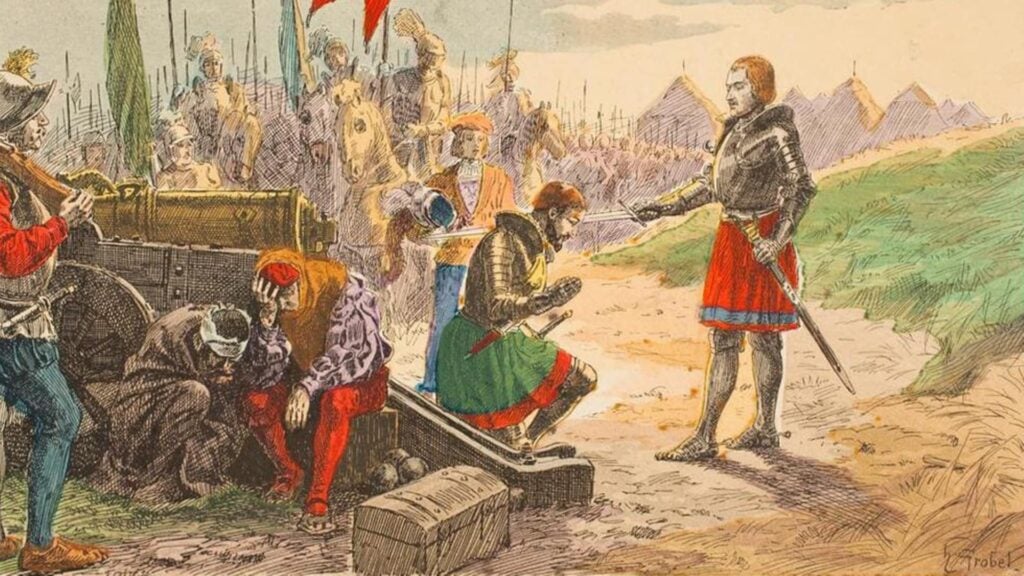Switzerland has been a neutral territory for more than 500 years. They’ve successfully maintained their neutrality during global conflicts and often offer humanitarian services instead. But why did they choose to become impartial despite having solid military capabilities?
The earliest move to Swiss neutrality began when they fought the French in the Battle of Marignano in 1515. Before this battle, the Swiss took a more invasive approach, conquering nations and expanding their territories.
The Battle of Marignano
In 1291, the first Swiss Confederation was formed, also known as the forest cantons. The cantons banded together with one goal, to rebel against German Albrecht I. Their victory led to the rise of the Swiss army, known to be ruthless and courageous on the battlefields.
The newly formed confederation won many victories, such as the Battle of Morgarten in the early 1300s, the Battle of Laupen in 1339, and the Battle of Sempach in 1386. Their armies grew famous, known as formidable foes on the battlefields, capturing and plundering most of North Italy, including Milan. (Source: The Past)
But in 1515, the new and young French King Francis I started invading Italy. He set his eyes on the Swiss-occupied Milan. Knowing the Swiss army’s capability, Francis decided to surprise them by taking an unused pass on the Alps and into the plains around Milan.
The Swiss were taken by surprise. They began to offer terms to the French but changed their mind when reinforcements arrived. The Swiss army increased by 22,000 and attacked the French army on September 13. They were able to take French artillery during this battle and use it against them.
The battle lasted for hours and went on until night, with both armies fighting fiercely until they retired. As the Swiss followed the previous day’s tactic, they launched a massive charge at the French on the next day. But this time, the French were ready with their arsenal.
The battle was at gridlock. The only time the French got the upper hand was when the Venetian reinforcements came. The French won, leaving many Swiss casualties. Their victory resulted in immediate peace with the Swiss. They agreed on a treaty whose clause was Eternal Peace.
The clause implied that neither France nor Switzerland would ever fight each other. And would ally with the other’s enemies. Switzerland’s neutrality started from this point. The nation’s stand on neutrality was enforced by laws preventing Swiss citizens from fighting in foreign wars. (Source: War History Online)
The Medieval Swiss Army
Today, the Swiss Guard is known to be the pope’s protectors in the Vatican. But during the renaissance period, many Swiss adventurers joined different armies and fought other battles. According to historians, the Swiss troops were among the first European soldiers to master the use of pikes and halberds against more heavily armed enemies.
Swiss troops earned their notoriety during battles by possessing revolutionary warfare tactics and sheer brutality. But they were contract troops, sometimes even called mercenaries. They were known to be the best troops money could buy in their time. (Source: History)
